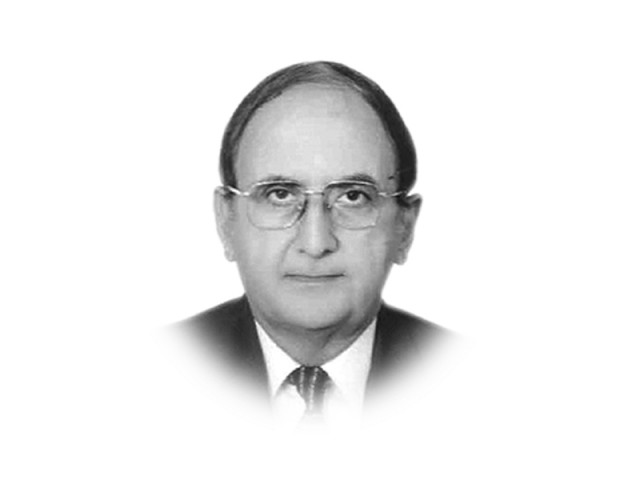The Islamic State movement and Pakistan
The surfacing of the name of Islamic State Movement in Pakistan does not appear to have created a new terrorist threat

The Islamic State movement and Pakistan
Abu-Bakr al Baghdadi and some of his allies joined the campaign against Bashar al-Assad in Syria in 2011. The erosion of state authority in Syria and availability of funds from conservative Arab states and private Arab donors helped these militants become strong in that country, which in turn strengthened them in Iraq on their return
The new organisation emerged on the political scene in 2014, challenging the Iraqi government. It became the focal point for all those angry with the policies of the Maliki government, including former Baathists and even those Sunnis who had supported Maliki in the past.
The Islamic State movement represents the desire of its leadership to carve out a role for itself, which is independent of other militant organisations and especially al Qaeda. Its rise has weakened al Qaeda in Iraq. It would like to take firm control of some territory to create its authority structure, if it cannot take over a state like Iraq, Syria or Yemen.
Being an ideological and brutal movement, the Islamic State has opened several fronts. Had it confined itself to fighting against the Iraqi and Syrian governments, it would have enjoyed the support of Saudi Arabia and other conservative Arab states. However, it has targeted the Kurdish areas in Iraq and Syria. It has also threatened the conservative Arab kingdoms, including Saudi Arabia. Above all, it openly challenged the United States and European countries. Recently, it executed a number of Iraqis for working against its interests.
Such a self-centred strategy of flexing of muscles in all directions has incurred opposition from diverse elements in Iraq and Syria. If its control of some oil wells in Iraq and flow of money from non-official Arab sources are checked, it will be weakened. However, the inconsistencies in American and Arab policies for dislodging the Syrian government led by Bashar al-Assad have created enough space for the Islamic State movement to thrive.
In Pakistan, there is no evidence available, so far, that any official leader of the Islamic State movement from the Middle East has come to Pakistan to mobilise support and organise the movement here or seek regular allies from amongst the Pakistani Taliban and other militant groups. However, unconfirmed reports indicate that some Muslims from Pakistan and India have gone to Iraq to join this movement. In the case of Pakistan, it is possible that some Taliban and other radicals have gone there. The greater probability is that militants from the Arab world, hitherto based in Pakistan, have gone to Iraq and Syria.
Wall-chalkings about the existence of the Islamic State have appeared in Karachi. Some pamphlets were distributed in one or two places in Khyber-Pakhtunkhwa. This does not prove that the official Islamic State movement has made direct inroads into Pakistan. However, its religious-cum-political ideology is shared by many hardliners and their radical groups in the country. Some of their factions, in search of recognition, appear to have adopted the name Islamic State Movement. This is a reflection of the growing splits among Pakistani militant groups, especially the Pakistani Taliban. Since the death of Hakimullah Mehsud and the rise of Mullah Fazlullah as its chief in 2013, there are reports of alienation of some leaders within the Pakistani Taliban movement. Some breakaway or alienated activists and leaders seem to have opted for identifying themselves as the Islamic State.
In October, five Pakistani Taliban leaders, including the former Taliban spokesman, Shahidullah Shahid, announced that they were joining the Islamic State movement. One report indicated that some activists from Uzbekistan were striving to recruit Taliban activists for the Islamic State movement.
This announcement created another split among the Pakistani Taliban. It is not clear if these Pakistani Taliban activists have any direct contact with the leadership based in Iraq. It is quite possible that these Pakistani militants have created a new identity in order to draw attention, as the Islamic State gets a lot of attention in the international and local media.
The surfacing of the name of Islamic State Movement in Pakistan does not appear to have created a new terrorist threat. Some of the old groups and leaders are regrouping and reorganising under this name. It, therefore, reflects changes in the internal dynamics of militancy in Pakistan. Extreme movements take roots in states that experience sustained internal chaos and strife, and where the state is paralysed or it is unable to assert its primacy in parts of its territory. Such signs can be identified in Iraq, Syria, Yemen and Somalia.
In Pakistan, the ongoing security operation in North Waziristan and the assertion of the primacy of the state in other tribal areas aim at denying the militants any opportunity for controlling an exclusive and secure area to entrench themselves and set up hideouts, and training and weapons storage facilities on a permanent basis. Therefore, the success of the security operation is expected to weaken militancy in Pakistan. It is also important to strengthen security on the Pakistan-Afghanistan border. If these measures are sustained over time, movements like the Islamic State are not expected to cause any new internal security challenge for Pakistan.
Published in The Express Tribune, November 3rd, 2014.
Like Opinion & Editorial on Facebook, follow @ETOpEd on Twitter to receive all updates on all our daily pieces.















COMMENTS
Comments are moderated and generally will be posted if they are on-topic and not abusive.
For more information, please see our Comments FAQ